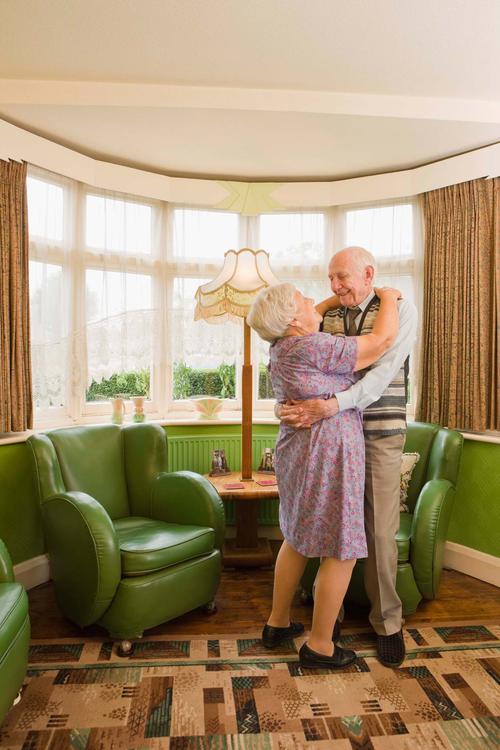Elder abuse is a component of domestic and family violence under the Domestic and Family Violence Act 2012, and is defined as any act which causes harm to an older person and is carried out by someone they know and trust. The abuser may be:
- a son or daughter,
- a grandchild,
- a partner,
- other family member,
- a friend
- or a neighbour.
Abuse can be unintentional or deliberate. The harm caused to an older person may range from the unintended effects of poor care through to serious physical injury inflicted deliberately. Harm can also include emotional harm and financial loss including the loss of a home and belongings.
The older person may be dependent on the abuser, for example if they rely on the abuser for care. It is also common for the abuser to depend on the support of the older person, for example for accommodation. Sometimes, there may be a co-dependent relationship where both the older person and the abuser depend on each other.
Elder abuse can take many forms. Often more than one type of abuse can be used.
- Emotional (or psychological) abuse: Using threats, humiliation or harassment causing distress and feelings of shame, stress or powerlessness. It often occurs in combination with other forms of abuse.
- Neglect: Failing to provide the basic necessities of life, either intentionally or unintentionally.
- Financial abuse: Using someone’s money, property or other assets illegally or improperly or forcing someone to change their will or sign documents. This is one of the most common forms of abuse
- Physical abuse: Inflicting pain or injury by hitting, slapping, pushing or using restraints.
Social abuse: Forcing someone to become isolated by restricting their access to others including family, friends or services. This can be used to prevent others from finding out about the abuse. - Sexual Abuse: Any sexual activity for which the person has not consented.
Some forms of abuse are criminal acts, for example physical and sexual abuse. Alleged criminal activity should be reported to the police.
When choosing an age to define ‘older’ people, 65 years is commonly used, however different state and commonwealth programs may have differing age eligibility criteria. Organisations may also have their own age-related criteria. For example, at Seniors Rights Victoria we work with Victorians aged 60 and over and Indigenous Victorians aged 45 and over.
Elder abuse is a form of family violence. Family violence can occur between any family members (parents, spouses, children, partners) whether living together or not. The legal protections available to people who experience family violence apply equally to older people. This includes the right to apply for an intervention order to protect someone from further abuse.
For more information:
Elder Abuse Prevention Unit
The Elder abuse Prevention Unit promotes the right of older people to live free from abuse, with resources for seniors and service providers, and details for getting help
Elder Abuse Helpline
1300 651 192 (Monday to Friday 9am to 5pm)
Trained staff at the helpline can explore the situation with you and help identify services and individual strategies to address the abuse.
Seniors' Legal and Support Service (SLASS)
If you are a victim of elder abuse or feel that you have been mistreated or taken advantage of financially, help is available. The Seniors Legal and Support Service(SLASS) provides free legal advice, information and social work services for people over 60.
The service can assist you with:
- legal information and advice
- social work services
- short-term counselling
- advocacy on your behalf
- a referral to other legal, consumer and support services
- representation in court or before tribunals (in certain circumstances).
Brisbane Seniors Legal and Support Service Phone: (07) 3214 6333
Cairns Community Legal Centre—Seniors Legal Service Phone:1800 062 608
Hervey Bay Neighbourhood Centre—Seniors Legal Service Phone:(07) 4124 6863
Toowoomba Seniors Legal Support Service Phone:(07) 4616 9700
Townsville Community Legal Service—Seniors Legal Service Phone: (07) 4721 5511
Public Trustee
For more than 100 years the Public Trustee has been helping Queenslanders manage their planning for the future.
With over 550 staff, located at 16 Regional Offices across the state, and mobile will making service, they provide a range of services to Queenslanders including Will making, Enduring Powers of Attorney, Executor and Financial Administration services. To make an appointment visit the Public Trustee website or call the Public Trustee on 1300 360 044.
Other confidential advice and support services
- Lifeline: 13 11 14 (24-hour crisis support line)
- Legal Aid Queensland: 1300 651 188 (8.30am to 5pm)
- DVConnect Womensline: 1800 811 811 (24 hours, seven days a week)
- DVConnect Mensline: 1800 600 636 (9 am to midnight, seven days a week)
Seniors Rights Victoria
Seniors Rights Victoria has a great online toolkit with information, fact sheets, frequently asked questions and a comprehensive resource library.
If you are experiencing elder abuse, don’t wait—access help now.

